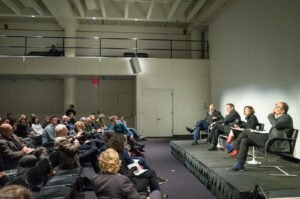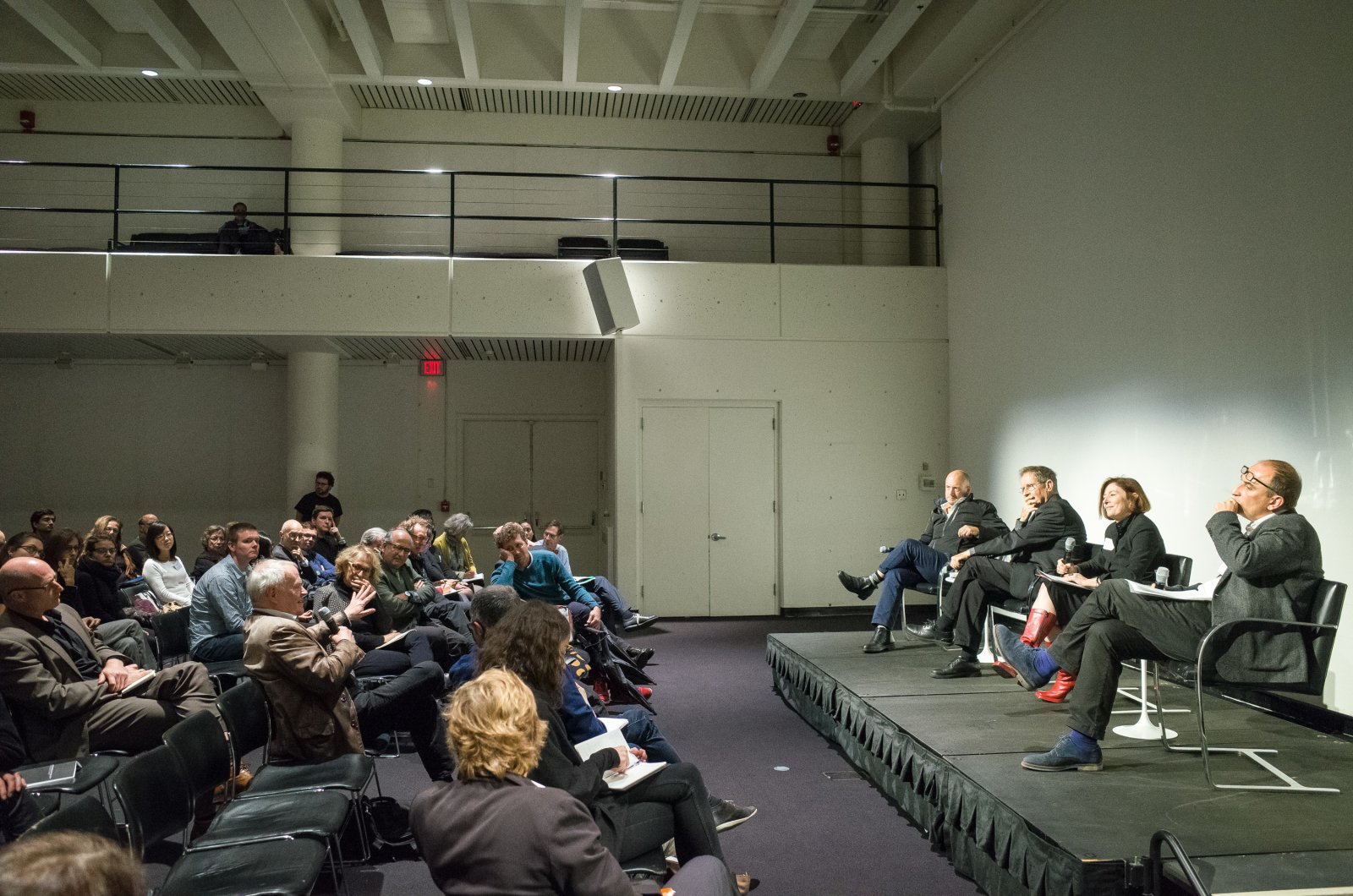Knowledge Transmission In Graduate Education: The foundation of developing competence and stimulating intellectual development in graduate education is knowledge transmission. In this complex process, seasoned scholars intentionally impart knowledge, abilities, and critical thinking to the upcoming generation of scholars. Graduate programs serve as furnaces in the field of higher education, where ideas are ignited and transmitted via a cycle of mentorship and intellectual interaction. A careful dance of teaching techniques, research immersion, and cooperative inquiry is needed to progress from novice to expert.
The mechanisms of knowledge transfer emerge as we explore the complex terrain of graduate education, creating an intricate web of intellectual heritage. This investigation not only gives students the skills they need to contribute to scholarship, but it also upholds the academic community’s cycle. Therefore, maintaining the intellectual health of our academic institutions depends critically on comprehending and maximizing knowledge transmission in graduate education.
Knowledge Transmission in Graduate Education: A Practical Approach
Graduate school is the highest level of education where students go from being students to being contributors in their areas. This journey of transformation revolves around the subtle process of knowledge transmission. We explore the nuances of knowledge cultivation, transmission, and acquisition in graduate education in this paper.
Read also: STEM Education And Workforce Preparation
Recognizing the Basis
Fundamentally, the transfer of information in graduate education is the deliberate teaching of conceptual models and applied competencies. The classroom is transformed into a crucible where traditional teaching techniques, interactive learning, and practical experiences are combined to produce a learning atmosphere that fosters intellectual development.
The phrase “Knowledge transmission in graduate education” captures the spirit of this process by emphasizing how information is transferred in a planned and organized manner. Students are active participants in the creation of knowledge as they set out on their academic journey, not just consumers of data.
Pedagogical Techniques: Going Beyond Seminars and Lectures
Pedagogical practices in graduate education go well beyond traditional lecture and seminar formats. Though these are still essential, cutting-edge methods like problem-based learning and flipped classrooms have become more well-known. In a flipped classroom, students work on the material outside of class, freeing up in-person time for in-depth conversations and cooperative problem-solving.
Students are guaranteed to be active participants in their own learning rather than passive observers thanks to this dynamic approach to knowledge transfer. The focus switches from rote memorizing to the graduate education mainstay of critical thinking and application.
Mentoring to Intellectual Legacies
In graduate education, mentoring is essential to the knowledge transfer process. Reputable academics who are frequently at the top of their disciplines serve as mentors to students, helping them navigate the complexities of higher education. The mentor-student connection extends beyond the confines of traditional education, representing the transmission of implicit wisdom acquired through experience in addition to formal knowledge.
There are halls where these ties bloom where the phrase “Knowledge transmission in graduate education” reverberates. It represents the passing of the intellectual torch from mentor to protégé, forming a network of knowledge that spans several generations of academics.
Read also: Scholarly Competence In Graduate Education
Using Technology as a Spark
Technology has become a potent catalyst in the diffusion of knowledge in the twenty-first century. The traditional classroom setting is being redefined by virtual learning environments, interactive simulations, and online collaboration tools. “Knowledge transmission in graduate education” currently refers to the transfer of knowledge online as well as in traditional classroom settings.
With virtual laboratories, for example, students can perform experiments in a simulated setting without being constrained by physical space or resources. By ensuring that knowledge is not limited by geographic borders, educational technologies are integrated to create a global platform for intellectual exchange.
Fairness and Inclusion: Filling in the Misses
In graduate education, ensuring inclusive and equitable knowledge transmission is still a major concern. Although different student populations offer distinctive viewpoints, there may be large gaps due to differences in educational backgrounds, socioeconomic status, and resource availability.
As universities work to close these inequalities, the phrase “Knowledge transmission in graduate education” takes on a social justice meaning. An inclusive curriculum, mentorship programs that take into account the special needs of underrepresented groups, and teaching strategies that are tailored to fit a variety of learning styles all contribute to a more equal educational environment.
Keeping Up with Trends: A Juggling Act
The methods used to transmit knowledge must change along with changes in research and education. The graduate education environment is changing as a result of interdisciplinary studies, joint research projects, and the integration of developing fields. “Knowledge transmission in graduate education” is a term that keeps coming up in conversations about how important flexibility is.
The rise in popularity of student-centered learning techniques recognizes the value of individualized learning paths and self-directed inquiry. Maintaining the relevance and effectiveness of knowledge requires graduate programs to carefully balance embracing novel approaches with upholding fundamental principles.
Case Studies: Illustrating Efficient Transmission of Knowledge
A number of graduate programs are models of efficient knowledge transfer. For example, the Stanford Graduate School of Business uses a case-study approach that immerses students in actual business problems. This approach guarantees the direct application of theoretical principles, facilitating a smooth transfer from classroom instruction to the business world.
In the same way, universities such as MIT use state-of-the-art technology to provide virtual lab experiences in scientific fields. Through the use of simulations, students conduct experiments that go beyond the constraints of actual laboratories, democratizing access to high-quality education.
Read also: The Academic Strengths And Weaknesses of Students
The Scene of the Future
The phrase “Knowledge transmission in graduate education” rings with expectation as we look to the future of graduate education. A dynamic educational environment is a result of the development of artificial intelligence, the incorporation of experience learning through virtual and augmented reality, and the growing emphasis on soft skills.
As these changes occur, the idea of knowledge transmission also changes, forcing institutions and educators to adapt and change with the times. Future graduate education promises to be even more connected and approachable, with a global community of scholars co-creating and transmitting knowledge.
From Transmission to Transformation and Beyond
The phrase “Knowledge transmission in graduate education” captures a process that extends beyond the simple transfer of knowledge in the complex dance of academia. It represents a change in status—from student to contributor, from expert to novice. Graduate school turns into a furnace where information is not only acquired but created, where intellectual heritage is born from mentoring, and where technology is an enabler rather than a limitation.
Realizing the complexity of knowledge transmission is crucial as we traverse this terrain. It is a dynamic interaction of strategies, relationships, and technologies rather than a one-size-fits-all undertaking. Accepting this complexity guarantees that graduate school will continue to be a lighthouse for intellectual development, advancing upcoming researchers into fields of invention and discovery.

Knowledge Transmission in Graduate Education: Methodologies
In graduate education, knowledge transfer takes many different forms, all of which are designed to include and empower students. The fundamental instruments of lectures, seminars, and workshops offer an organized forum for the sharing of theoretical ideas and research discoveries. These seminars’ dynamic exchanges encourage students to critically assess and interpret complicated subject matter by facilitating a two-way flow of information.
Additionally, by encouraging a sense of community and mutual inquiry, group projects and discussions enhance the impact of information transmission. A comprehensive understanding is facilitated by case studies, simulations, and practical experiences, which bridge the gap between theoretical knowledge and real-world application.
Striking a Balance Between Theory and Real-World Application
In graduate education, finding a balance between theoretical knowledge and real-world application is essential. Though theoretical knowledge serves as the intellectual basis, practical application is where its full value is achieved. To close this gap, graduate schools frequently include chances for experiential learning including research projects, internships, and industry partnerships.
Coursework that incorporates real-world circumstances enables students to apply abstract ideas in real-world contexts. This method not only improves understanding but also fosters flexibility and problem-solving abilities. A full educational experience is created by the interaction of theory and practice, equipping graduates to handle the intricacies of their chosen disciplines.
Read also: Education for Peace and Conflict Resolution
The Function of Interpersonal Relationships and Mentoring
In graduate education, mentoring and interpersonal interactions are essential to the efficient transfer of knowledge. Graduate students benefit from the insightful advice, tailored support, and guidance of seasoned mentors, who enhance their educational experience. These connections go beyond the classroom and help to create a feeling of community and belonging in the learning environment.
Tactic information, or experience-based insights that are frequently difficult to communicate through conventional teaching approaches, is transmitted through mentoring. Interpersonal connections with peers and mentors foster a cooperative environment where information is discussed, shared, and improved. The impact of knowledge transmission is amplified by this interconnection, which benefits graduate students’ overall growth.
Making the Most of Technology to Improve Knowledge Transmission
In order to modernize graduate education’s knowledge transmission, technology is essential. Diverse channels for information dissemination are provided via multimedia platforms, internet resources, and virtual classrooms. Flexibility is made possible by the integration of educational technologies, which enables students to participate in interactive learning activities and access resources at their own pace.
Furthermore, by overcoming conventional boundaries of time and place, emerging technologies like augmented reality (AR) and virtual reality (VR) provide immersive educational experiences. Globalized approaches to knowledge transfer are promoted by the increased connectedness that collaborative online platforms and communication technologies provide between educators and students. Technology is wisely incorporated to guarantee that graduate education is flexible and sensitive to students’ changing demands.
Obstacles to the Equitable and Inclusive Transmission of Knowledge
There are many obstacles in the way of graduate education’s equitable and inclusive knowledge transfer. Effective learning can be hampered by disparities in cultural norms, educational levels, and resource accessibility among varied student populations. In order to guarantee that every student has an equal chance to gain from the transfer of knowledge, it is imperative to address these issues.
Promoting cultural sensitivity in curriculum design, giving underrepresented groups more support, and adapting teaching strategies to suit their varied learning styles are all crucial measures in cultivating inclusion. Acknowledging and addressing these obstacles helps to establish a setting in which each graduate student can flourish in their quest for knowledge.
Changing Trends’ Effect on Conventional Methods
Graduate program teaching methods are always being reshaped and shaped by changing research and educational trends. Graduate education’s content and delivery are impacted by the emergence of interdisciplinary studies, the emphasis on interdisciplinary collaboration, and the integration of developing subjects. The swift advancement of technology also demands that instructional approaches be continuously modified.
The trend toward more student-centered teaching methods also recognizes the value of customized curricula and independent study. To maintain the efficacy of knowledge transfer as graduate education changes, institutions must find a balance between upholding fundamental ideas and adopting cutting-edge approaches.
Read also: Assessment and Evaluation in Global Education
Further: Graduate education’s knowledge transfer
In graduate education, knowledge transmission is a dynamic and ever-evolving process that calls for careful methodological integration, a balance between theory and practice, mentorship and interpersonal relationships, technological innovation, efforts to address inclusivity challenges, and flexibility in response to new developments. Graduate programs can enable students to become skilled scholars who can make significant contributions to their disciplines by guiding them through these complexities. The constant discussion about the dissemination of information guarantees that graduate education will always be a dynamic and adaptable cornerstone of intellectual growth.
Trust you found our article on Knowledge Transmission In Graduate Education helpful. Follow our website for more interesting articles.
